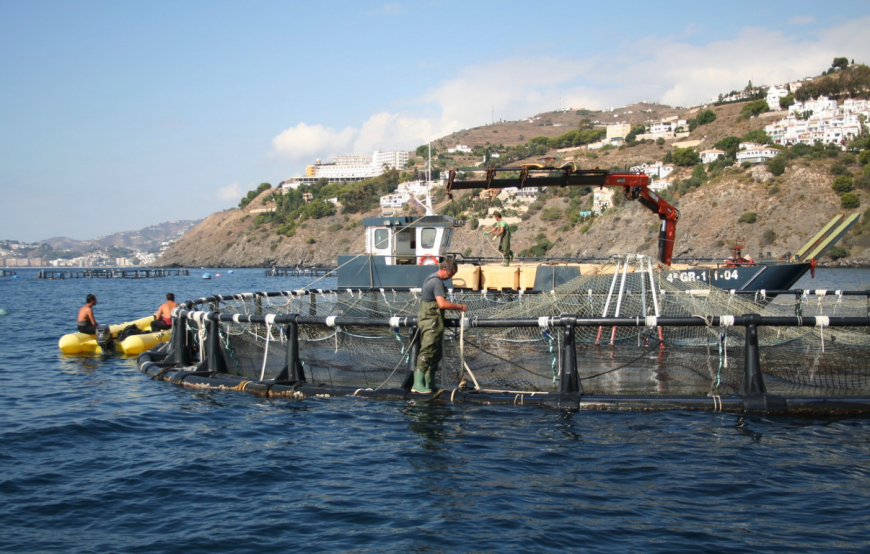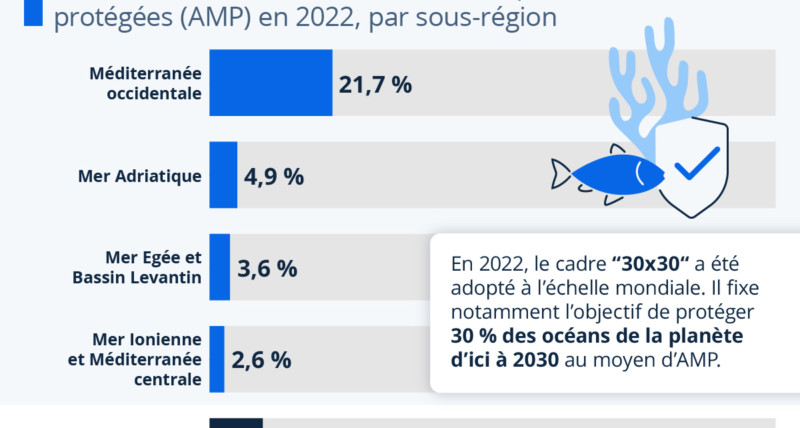The Regional Government of Andalusia has approved the Andalusian Strategy for a Sustainable Blue Economy, an ambitious plan worth over €216 million aimed at strengthening the maritime sector’s competitiveness until 2028. With seven key pillars and 35 measures, the initiative promotes innovation, biodiversity, circular economy, and blue tourism, in alignment with the Sustainable Development Goals. Over 300,000 jobs and 10% of the regional GDP depend on this strategic sector. Andalusia thus consolidates its role as a European leader in marine sustainability, technological innovation, and ocean-related economic development.
The Andalusian Strategy for a Sustainable Blue Economy is based on seven major thematic axes: sustainable governance, marine and coastal biodiversity, research and innovation, environmental awareness and education, climate change adaptation, circular economy, and digitization. Each of these axes includes measures aligned with the 17 strategic goals set by the Andalusian government.
Among the 35 measures envisioned, those aimed at protecting marine biodiversity, promoting renewable marine energies, encouraging blue tourism, and modernizing traditional sectors such as fishing and shipbuilding stand out.
« The blue economy of Andalusia is already a key driver of regional development, and with this strategy, we are taking a further step towards a sustainable, competitive, and innovative model, » highlighted Andalusian government sources following the approval of the plan.
A Public-European Investment of Over €216 Million
To implement it, the Andalusian Strategy for a Sustainable Blue Economy will receive total funding of over €216 million from regional and European funds. Specifically, it will be co-financed by the European Agricultural Fund for Rural Development (EAFRD), the European Regional Development Fund (ERDF), the Just Transition Fund, and the European Maritime, Fisheries, and Aquaculture Fund (EMFAF).
This financial allocation will ensure the progressive implementation of actions until 2028, enabling Andalusia to strengthen its competitiveness in sectors related to the sea, such as aquaculture, maritime transport, shipbuilding, and coastal tourism.
A Strategic Sector Generating 300,000 Jobs in Andalusia
According to data from the regional government itself, the blue economy currently represents over 10% of Andalusia’s GDP, with an annual turnover of €17 billion and nearly 300,000 jobs directly linked to the marine environment. Additionally, between 4,000 and 5,000 small and medium-sized enterprises operate in areas such as fishing, blue biotechnology, port logistics, and marine energy.
With nearly 1,000 kilometers of coastline between the Mediterranean and the Atlantic, Andalusia possesses unique conditions to lead the blue transformation in Europe, thanks to its strategic location, marine biodiversity, and deeply rooted culture connected to the sea.
Interministerial Coordination and Citizen Participation
In the design and deployment of the Andalusian Strategy for a Sustainable Blue Economy, nine ministries of the Juanma Moreno government are actively participating: Presidency, Economy, Agriculture, Employment, University, Tourism, Development, Sustainability, and Industry. This coordination ensures a transversal approach so that marine sustainability is integrated into key public policies.
The Andalusian government emphasized that the strategy was developed with transparency and citizen participation criteria, involving economic, social, and public administration stakeholders in the marine-coastal sphere.
Innovation, Training, and Ecological Transition
One of the central pillars of the Andalusian Strategy for a Sustainable Blue Economy is the promotion of technological innovation and applied research in the marine environment. Through alliances with universities, research centers, and emerging businesses, the goal is to enhance the competitiveness of the blue productive fabric and evolve towards a knowledge-based economy.
Similarly, programs will be promoted for training, vocational education, and digitalization to improve employability and generate new job opportunities in emerging sectors such as marine biotechnology and wave energy.
Blue Tourism and Circular Economy as Drivers of the Future
Another relevant axis will be blue tourism, which includes activities such as nautical, cruise, and coastal tourism, all aligned with environmental sustainability criteria and responsible coastal management.
Additionally, the transition to a circular economy model in the marine environment will reduce waste, promote resource reuse, and encourage responsible practices in industrial and port sectors.
« The Andalusian Strategy for a Sustainable Blue Economy is a commitment to the future that places the sea at the heart of Andalusia’s development, combining environmental sustainability, economic profitability, and social cohesion, » concluded the Council.
Source: ppandalucia




